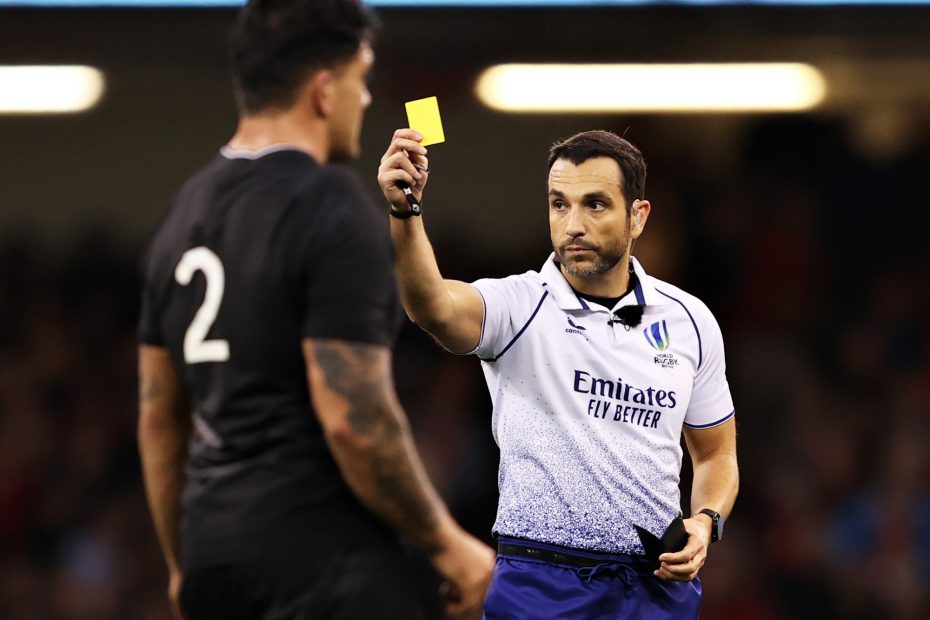Leading referee Mathieu Raynal says World Rugby made an error in introducing the bunker for use at the World Cup.
“I think it was probably a mistake to put the bunker in at the last moment just before the World Cup without practising it and using it more,” Raynal told the UK Telegraph.
“That was a mistake. It was tough, too, because you send a situation to the bunker, they come back to you with a decision, and you cannot explain to the world why you made that decision.
“Before that, we could put words on the footage and could take people by the hands and they followed us until the final decision. That was interesting in terms of communication and explanation. Now, with the bunker, we cut this relationship with the people in front of their TVs or the people in the stands, which was difficult.”
Mathieu Raynal. (Photo by Warren Little/Getty Images)
The bunker was introduced to help speed up the game with players given yellow cards on the field with an assessment to see if they should be upgraded to reds. New Zealand captain Sam Cane suffered that fate during the final loss to South Africa.
Raynal also called for referees to be able to explain their decisions to media after a match.
The ref, who is well known in Australia for penalising Bernard Foley late in the Melbourne Bledisloe Cup match in 2022, said he had suggested referees be allowed to hold press conferences.
“I said, before the World Cup, when we discussed how we should communicate in front of the press if there had been a mistake that changed the game. My view on that is we have to keep it very simple – I go and sit on a chair, and explain, ‘OK, guys, I made a mistake. The game was so quick, I made a mistake of judgement. I’m not sorry about it, as my job is to referee and mistakes can happen, but I am sad about it – but it is what it is. What do you want me to do? I will not jump off the top of a building because I made a mistake on the field.’ It’s the life of the referees,” Raynal said.
“I hope we will keep the relationship between the coaches, referees, players and fans as simple as we can. It’s easier when you say to fans, ‘Yeah I made a mistake.’ What can we do after that?”
New Zealand coach Ian Foster spoke this week of his belief that World Cup final referee Wayne Barnes and his team had missed a late penalty that could have given the All Blacks the win in Paris, but Raynal said that TMO was not a fail safe to avoid all mistakes.
“It would be interesting to see a game without a TMO,” he said.
“After one mistake people would accept it, after two mistakes they’d start to complain and then after three mistakes they would ask for the TMO to be brought back. We cannot fight against mistakes or avoid refereeing mistakes. We just need to accept it, and we’ll lose less energy fighting for zero mistakes in a game.
“You can put a drone up, something in the ball, experts everywhere, 20 bunkers, but that won’t change the fact that at some moments you have to accept mistakes by referees. The game is very quick, we make decisions in a split-second.
“In rugby we forgive player mistakes, forgive coaching mistakes, but we never forgive refereeing mistakes. We accept that, but people need to understand that our sport is more important than victory or defeat.
“Rugby has to think about that, what they want exactly in the future, and what sort of sport we’re going to give to our children. We still have a sport that’s full of values – but it’s starting to change a little bit. We have to be careful in the next few years about where we go as a sport.”
